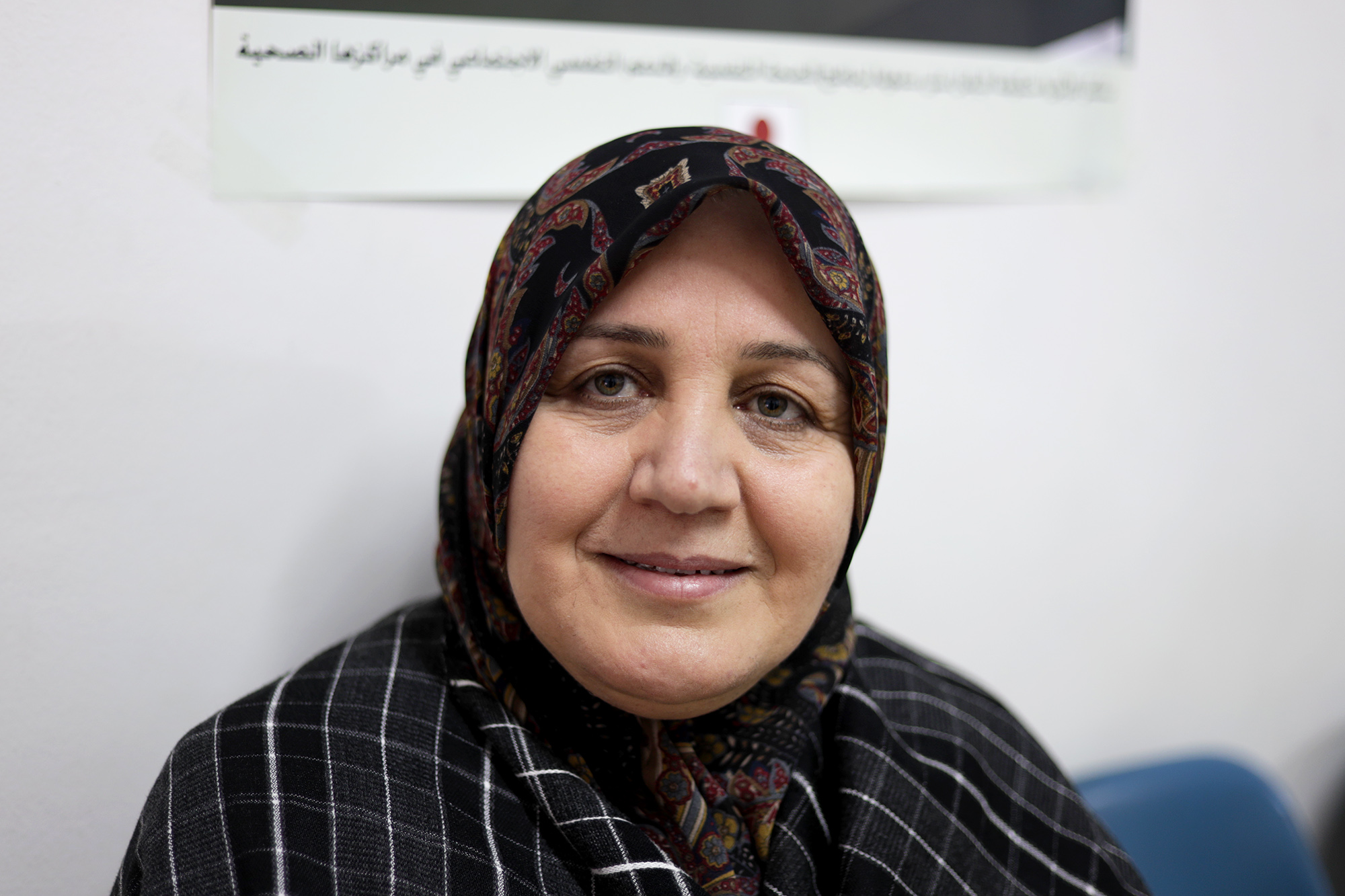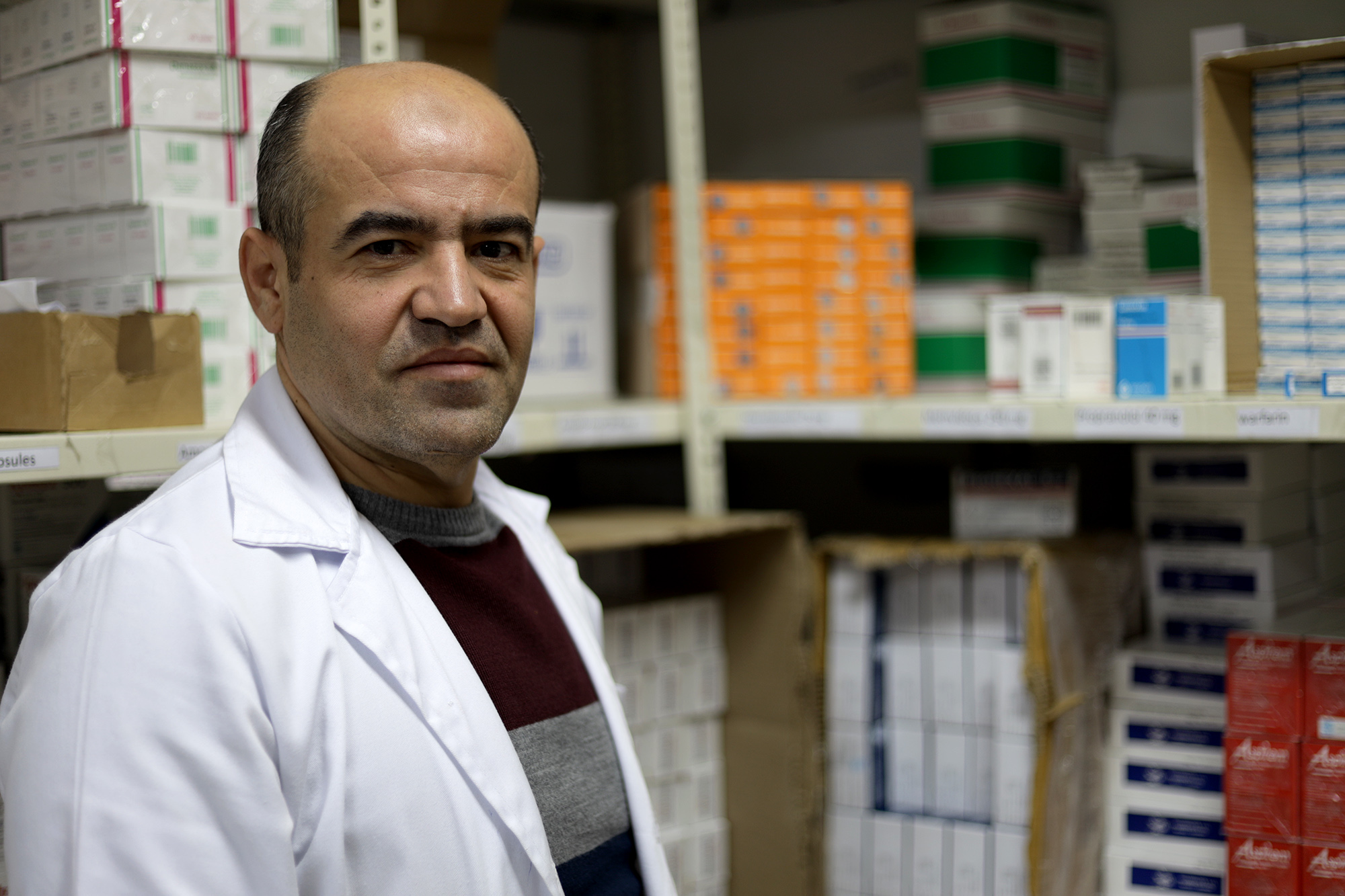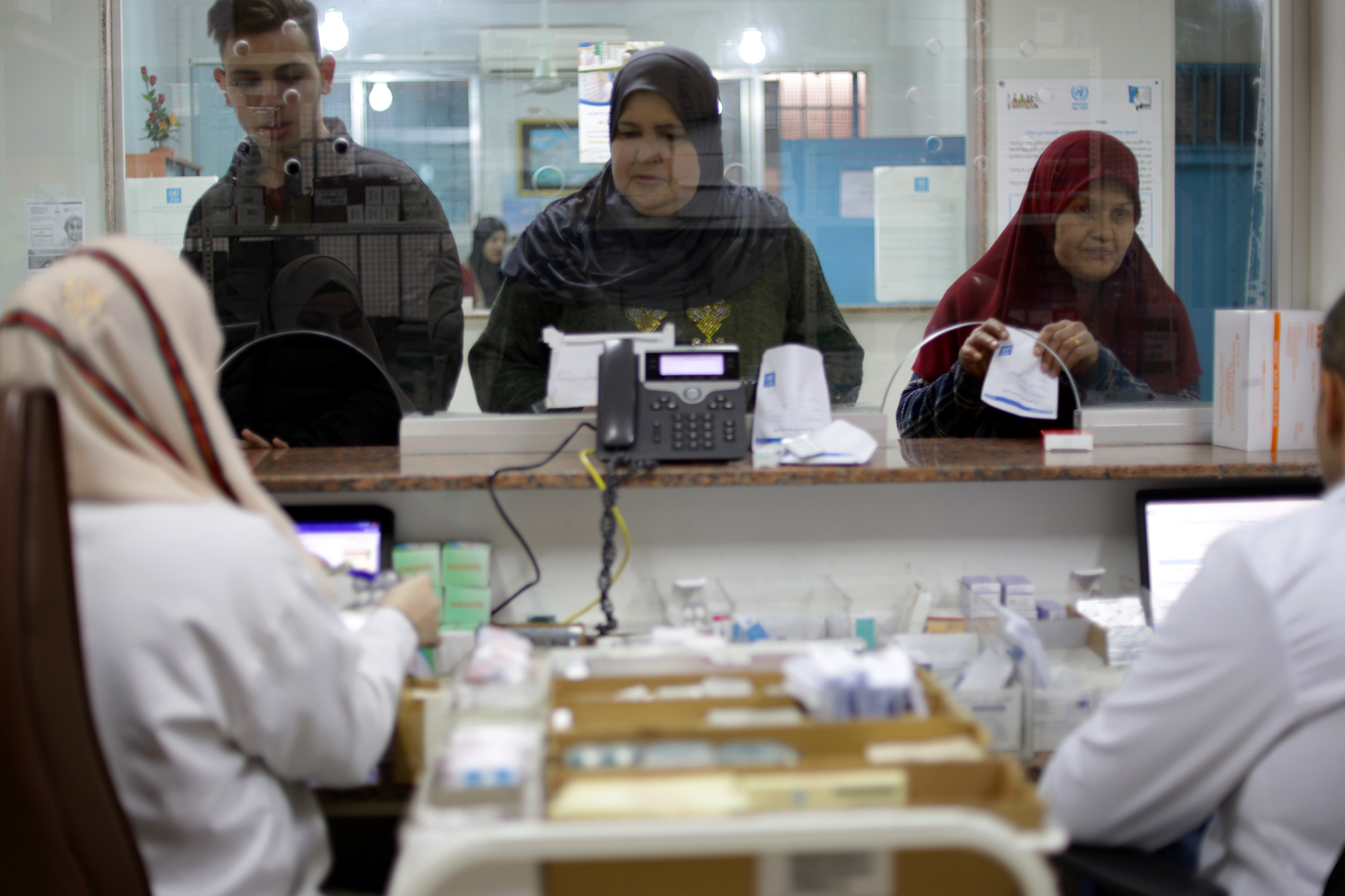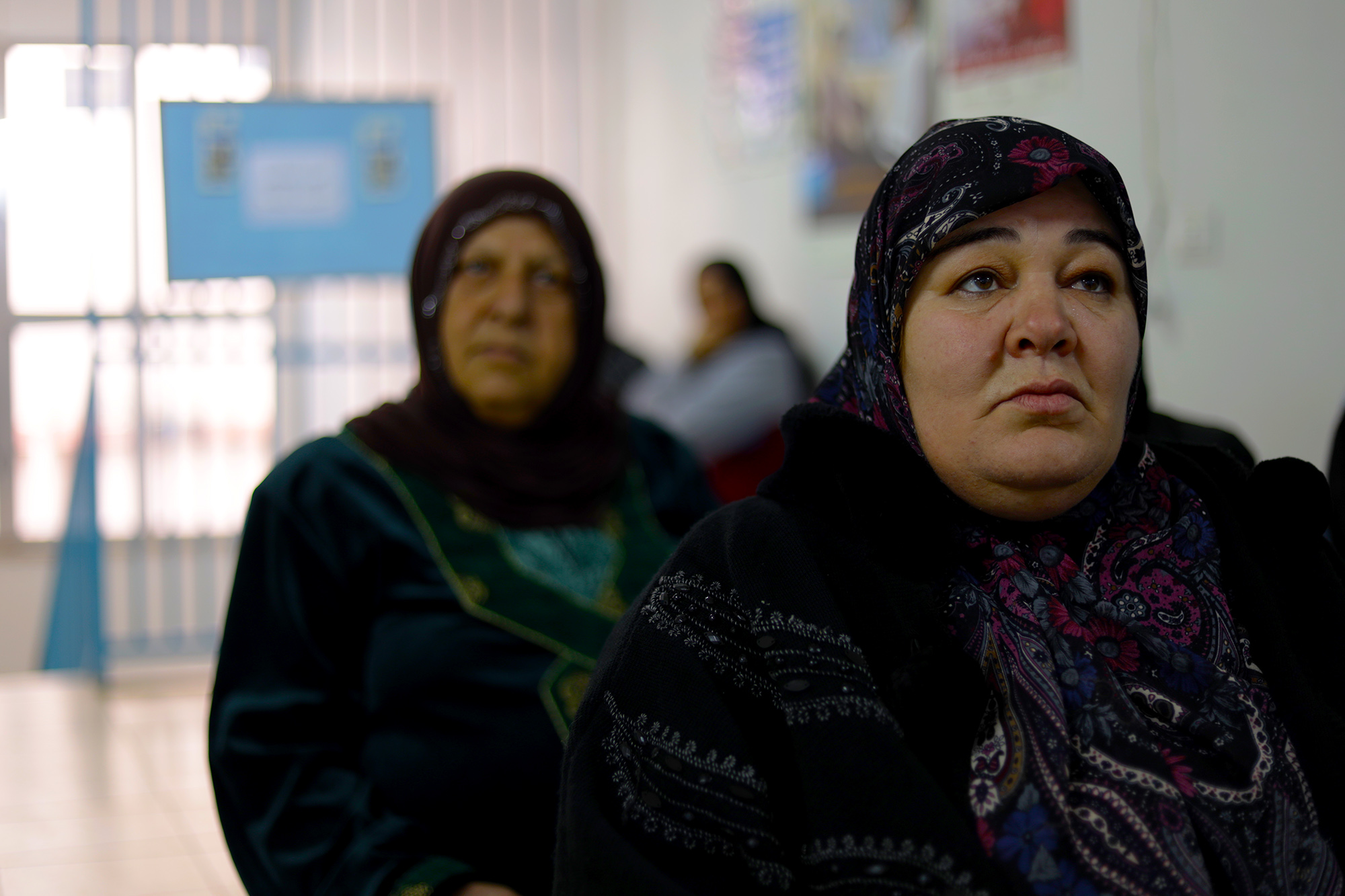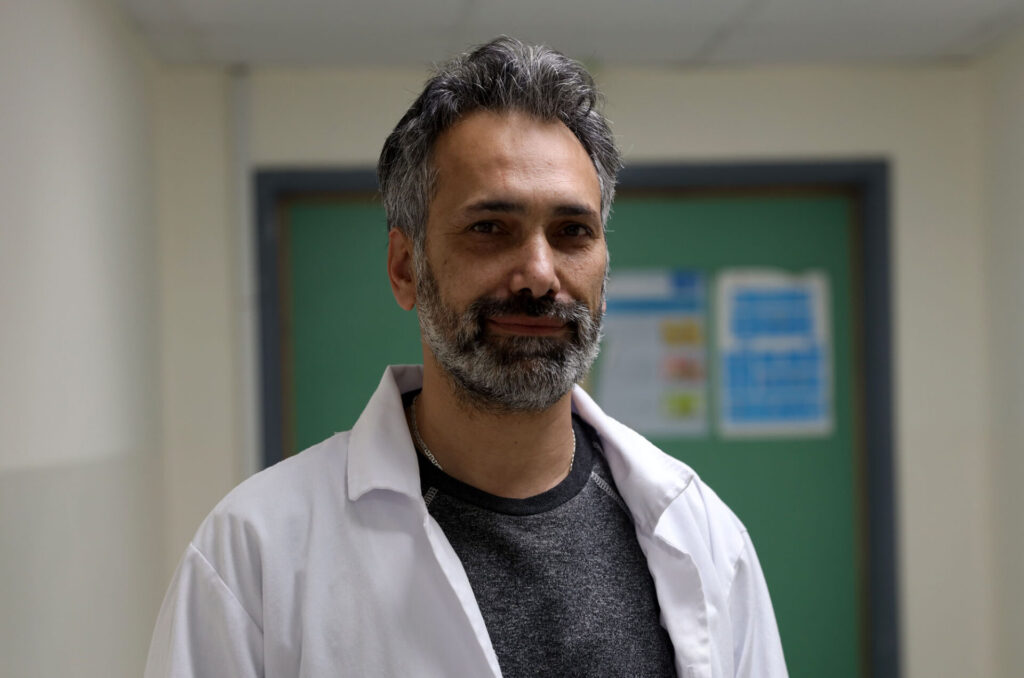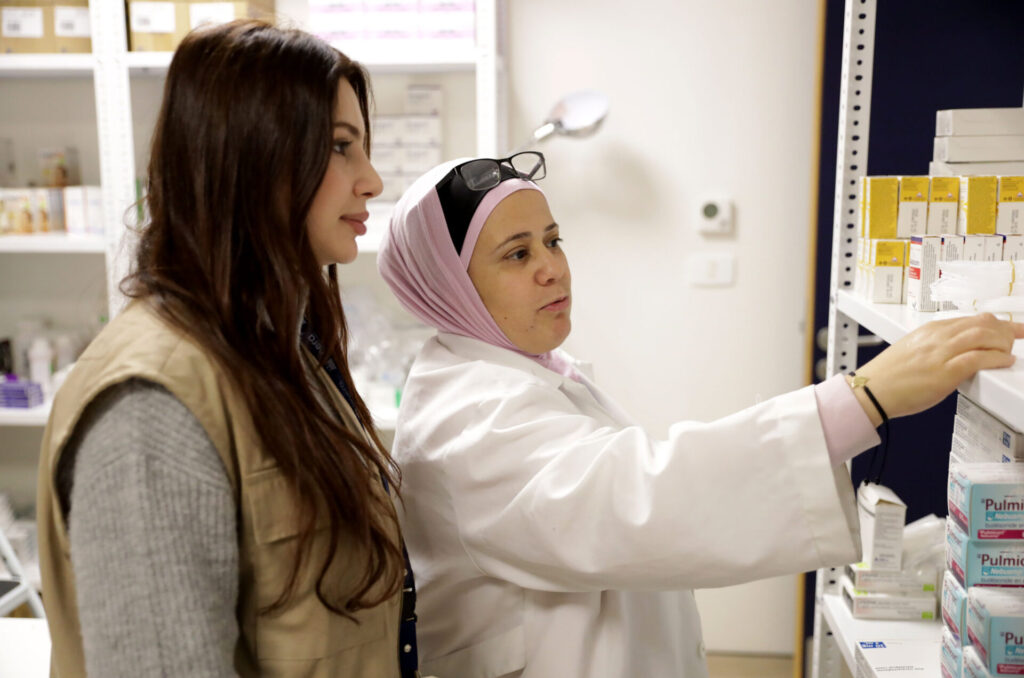HEALTH
Donations Ensure Refugees in Lebanon Get Essential Medicines
Apr, 2020
About 2,000 people rely on the UNRWA clinic in El Buss Palestinian refugee camp to acquire the chronic medicines they need.
Um Issa, is 56 years old and lives in El Buss camp, in Tyre, South Lebanon. She is unable to work because of her poor health. She has joint pain and hypertension, which sometimes leaves her sleeping for two or three days at a stretch. Every month she goes to the UNRWA medical clinic for her free hypertension pills. She says that not having to pay for these pills is a huge financial relief, allowing her to cover other medical costs, like the painkillers she needs to buy every week.
About 2,000 people rely on the UNRWA clinic in El Buss camp to acquire the chronic medicines they need. The illnesses that elderly Palestinian refugees from Lebanon and Syria struggle with range from Type 1 diabetes, which requires regular insulin shots for life, and Type 2 diabetes, which requires an array of medicines.
Chronic Illness Medications for Vulnerable Refugees in Lebanon
US aid cuts in recent years to Palestinian refugee communities, specifically to aid agencies such as the UNRWA, have drastically affected the free health care services provided by such agencies to Palestinian refugees born in Lebanon and Syria. Additionally, Lebanon’s current socio economic crisis has put further strains on the health care system. Many public hospitals and clinics are understaffed, under-equipped and at risk of shutting down completely.
Anera is responding to support Lebanon’s public health sector and the hundreds of thousands of Palestinian refugees living below the poverty line struggling with medical issues. Anera has increased distributions of free-of-charge chronic disease medications thanks to generous donations of medicines from Medical Education Training and Development (METAD) and with funding from the United Nations OCHA’s Lebanon Humanitarian Fund.
Anera recently distributed a shipment of medicines donated by METAD to the UNRWA clinic, including amlodipine, a calcium channel blocker used to treat high blood pressure and coronary artery disease. The donated quantity is sufficient to provide over 24,000 treatments.
Ghannam Nimr Ghannam, an UNRWA pharmacist who has been working in El Buss camp since 2005, says, "Thanks to METAD and Anera, we now have access to amlodipine, one of the most important drugs for patients with heart disease.” He says the drug is one of the most successful drugs for treating both high and low blood pressure, making it much simpler for the doctor to monitor, and for the patient to manage.
And through Anera’s partnership with UN OCHA’s Lebanon Humanitarian Fund and UNRWA, more than 13,000 patients are receiving medicines for chronic diseases at no charge, improving their ability to manage illnesses like diabetes, hypertension and other cardiovascular issues.
These efforts are needed now more than ever in the wake of the novel coronavirus pandemic.
“Chronic illness medication is very expensive,” Ghannam observes, “especially for refugees in the camp. People struggle so hard to get the money to pay for medicine, which can cost them an average of $100 a month. With your support, they can focus on meeting other crucial needs, especially during this financial crisis.”
Nezha was born in 1961 and lives in El Buss refugee camp. She suffers from hypertension and diabetes and relies on her local medical clinic to survive. Nezha works to pay for her children's education, which she prioritizes above all else. She goes to the clinic for blood thinning, hypertension and diabetes medications. Because of the clinic and Anera’s distribution of donated medicines, she can get her life saving medications at no cost. "That is a great fact because times are tough,” she says.
Nabila, 50, is another resident of El Buss. She used to work with her husband in the family business. However, she fainted several times while working due to her health troubles and had to retire. "I have had a really hard life,” she says. “My problems began with my nervous system during a time when my son fell ill, and then passed away. Later, I developed hypertension. I have been hospitalized twice already because of it."
Nabila goes once a month to get her hypertension pills. Sometimes she can scarcely afford the other medications she needs to buy so she is thankful that the medication is free.
El Buss was initially a camp for Armenian refugees, set up in 1935–36 by the French authorities in Mandatory Lebanon. When Palestinian refugees later arrived in the country, El Buss was one of the first sites assigned as a transit camp. Armenian and Palestine refugees lived side by side for a time, until the Armenians moved out to neighboring towns. Compared to other refugee camps in Lebanon, Palestinians in El Buss are more integrated with neighboring Lebanese people. A public hospital set up inside the camp area is also used by Lebanese citizens. And Palestinian Christians in the camp attend the same church as Lebanese Christians.
Anera’s partnership with UN OCHA’s Lebanon Humanitarian Fund and UNRWA is officially called the “Provision of Essential Chronic Disease Medication to Elderly Palestinian Refugees (PRL & PRS) in Lebanon’s Camps and Gatherings.”

